Humans
Sign up for our newsletter
We summarize the week's scientific breakthroughs every Thursday.
-
 Chemistry
ChemistryThirdhand smoke wafting off moviegoers hurts air quality in theaters
Nonsmoking theaters can still get exposed to cigarette-related pollutants carried in on audience members’ bodies and clothing.
-
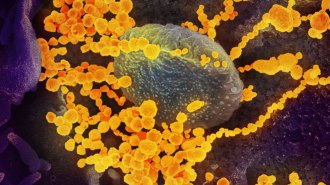 Health & Medicine
Health & MedicineAs the coronavirus outbreak evolves, we answer some key questions
As the new coronavirus spreads, we are updating this FAQ with the latest on the race to understand the virus and stop the growing global health crisis.
-
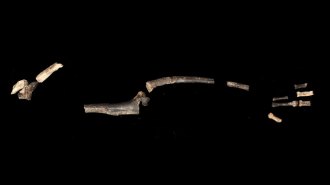 Anthropology
AnthropologyThe ancient hominid species that includes ‘Nutcracker Man’ may have made tools
Newly described hand, arm and shoulder fossils suggest that Paranthropus boisei had powerful arms with hands capable of making simple tools.
By Bruce Bower -
 Health & Medicine
Health & Medicine6 key coronavirus numbers you should know
COVID-19 cases and deaths are going up around the world. Here are numbers to help you understand the outbreak.
-
 Health & Medicine
Health & MedicineWhat the new phase of the coronavirus outbreak in the U.S. means for you
U.S. health experts warn there are probably many undetected COVID-19 cases already here, raising chances the disease will soon be widespread.
-
 Humans
HumansEvolving an arch across the foot’s width helped hominids walk upright
The arch across the foot evolved at least 3.4 million years ago, possibly before the lengthwise arch. Both arches help humans to walk and run.
-
 Health & Medicine
Health & MedicineCoronavirus’ spread in the U.S. may be a question of when, not if
The virus that causes COVID-19 is likely to gain a foothold in U.S. communities, says the US Centers for Disease Control and Prevention.
-
 Health & Medicine
Health & MedicineWe may be on the brink of a coronavirus pandemic. Here’s what that means
The coronavirus behind COVID-19 has not yet reached pandemic status, according the WHO, but we could be close.
-
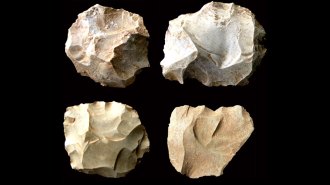 Archaeology
ArchaeologySouth Asian toolmaking withstood the biggest volcanic blast in 2 million years
Toolmakers continued to strike sharp-edged flakes as usual after a volcano’s colossal eruption around 74,000 years ago on what’s now Sumatra Island.
By Bruce Bower -
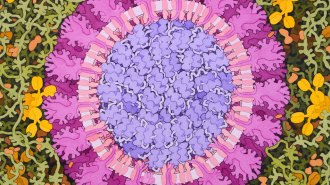 Health & Medicine
Health & MedicineTo tackle the new coronavirus, scientists are accelerating the vaccine process
Scientists are turning to nontraditional approaches to create vaccines and therapeutics that target the novel coronavirus.
-
 Health & Medicine
Health & MedicineU.S. drug deaths dipped in 2018, but cocaine and meth overdoses rose
In 2018, the rates of drug overdose deaths for methamphetamine and cocaine surpassed that of prescription opioids.
-
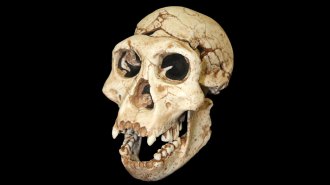 Humans
HumansThe earliest known hominid interbreeding occurred 700,000 years ago
The migration of Neandertal-Denisovan ancestors to Eurasia some 700,000 years ago heralded hookups with a resident hominid population.
By Bruce Bower